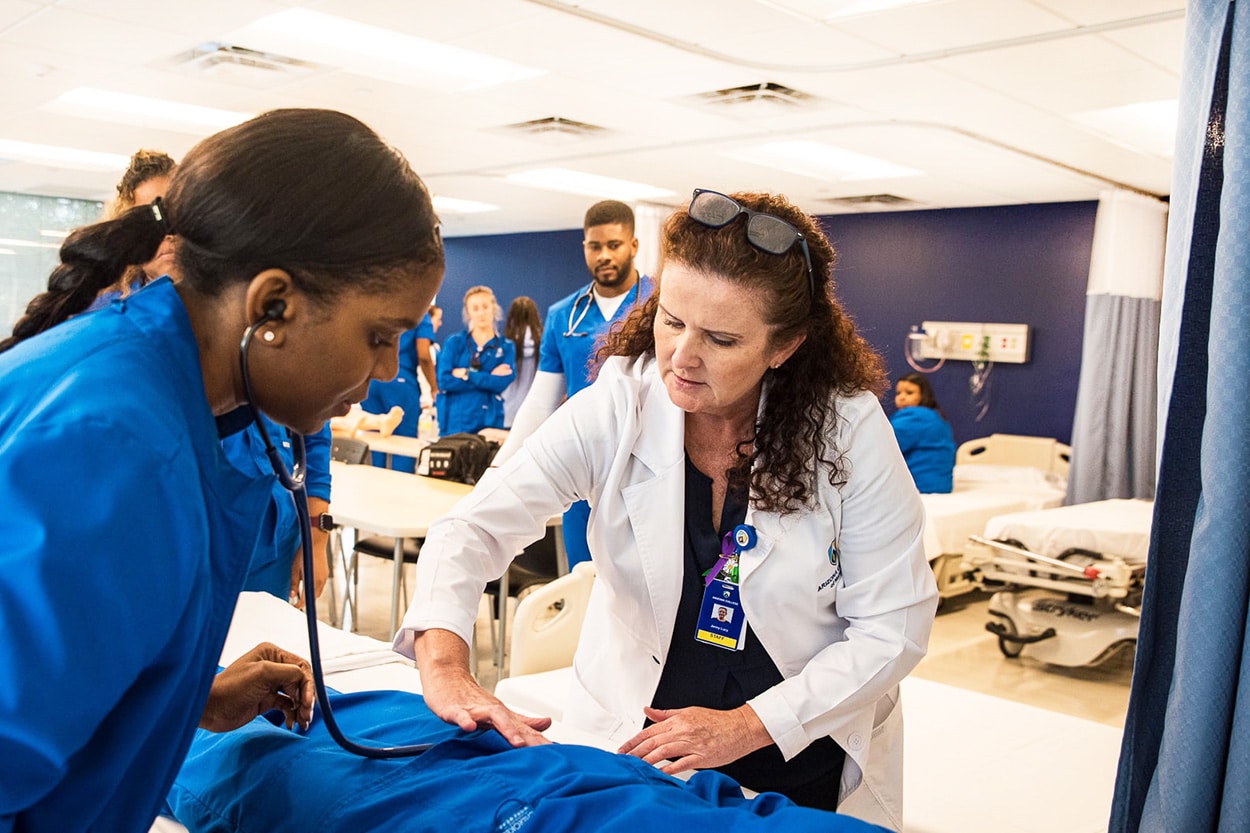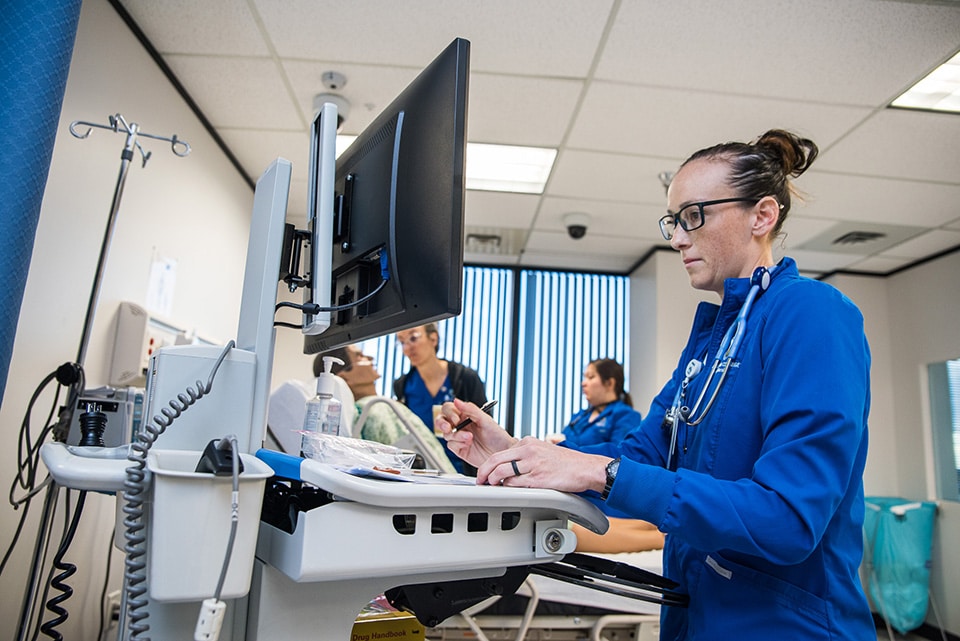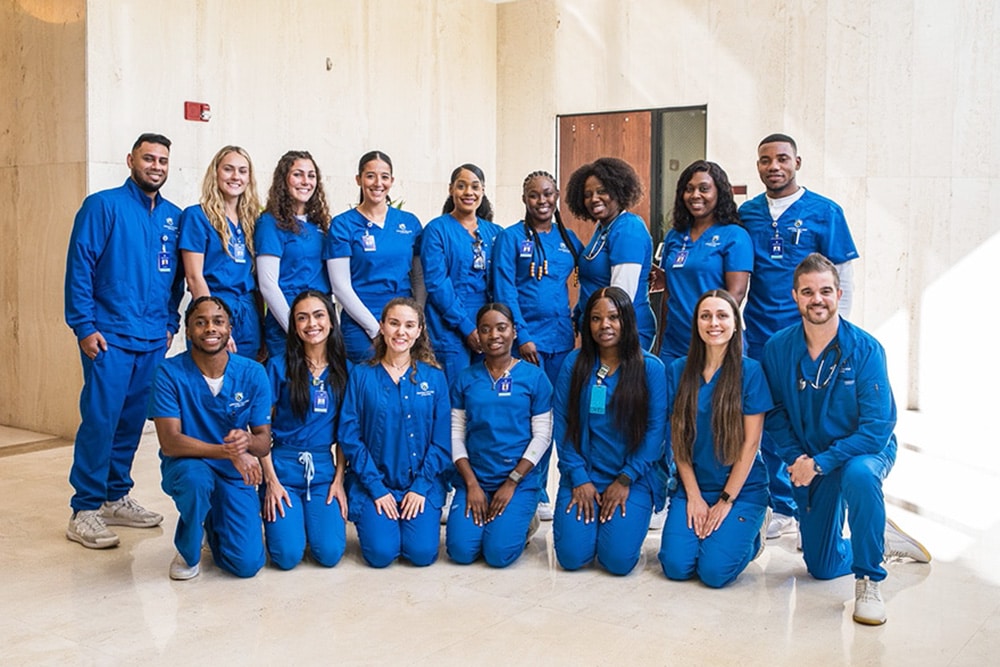
Becoming a registered nurse (RN) requires completing a nursing program, passing a national exam, and applying for licensure within your state. Discover how to successfully complete each stage required to become an RN with our steps below!
Step 1. Applying for Nursing School
The first step in becoming a registered nurse is attending nursing school. Choosing the program that is right for you is a big decision that will have a profound impact on your future career.
Getting into a nursing program that is approved by the State Board of Nursing can be a competitive process. The process for applying to, and enrolling in, a nursing school includes:
- Fulfilling prerequisites – Most nursing programs will have minimum educational requirements that must be met in order to enroll.
- Applying to college and/or the nursing program – For some schools, you must first apply to and be accepted by the college before applying to the nursing program. This step is not required at Arizona College of Nursing. Prospective students apply directly to our accredited nursing school.
After you have been accepted to a nursing program, you’ll need to create a plan for financing your education. At Arizona College of Nursing, we offer a variety of financial aid options that can help you with the cost of tuition and living expenses.
Step 2. Attending & Graduating from Nursing School

Expect to spend between 2-4 years in a nursing degree program. These are typically full-time programs, which means that students are enrolled in 12 credit hours or more each semester. Arizona College of Nursing offers a 3-year nursing program, where you can earn a Bachelor’s of Science in Nursing (BSN) in as little as 3 years!
Courses in these programs are focused on teaching you the essential elements of nursing science. Skills that will be taught include:
- Using health systems, equipment, and technology
- Administering medications
- Maintaining patient health records
- Best practices when interacting with patients
- Understanding the human system, anatomy, and physiology
- Ethics and ethical practices within the nursing field
- Leadership
A nursing degree program will also include general education studies that can help you improve your writing, mathematics, and critical thinking skills. Review the full BSN Program of Study for more information about the nursing education curriculum at Arizona College.
In addition to class and laboratory time, Arizona College’s nursing students complete 630 hours of clinical rotation time while working towards their degrees. This hands-on experience gives our students clear insight into what it’s like being a nurse in a variety of healthcare settings.
Step 3. Obtaining Nursing Licensure
Once you have successfully earned an associate’s degree or bachelor’s degree in nursing, you will then be eligible to take the National Council Licensure Examination-Registered Nurse (NCLEX-RN). Passing the NCLEX-RN is a requirement that must be met before you can apply for a nursing license in a specific state (such as Arizona or Nevada).
Applying for a nursing license is done through the State Board of Nursing (e.g. AZBN, NVBN). Applicants must:
- Fill out and sign an original copy of the application, which has to be mailed or brought into the board office in person
- Pay the application fee
- Supply a fingerprint card
- Have a certificate of completion from your nursing school sent directly to AZBN or LVBN (if you graduated out-of-state, your official transcripts may be required)
Once everything is received and your application is reviewed, you will be issued a nursing license. Your nursing license will need to be renewed on a periodic basis (this can vary based on the state of issuance).
Step 4. Beginning Your Career as a Registered Nurse

At Arizona College of Nursing, our Bachelor of Science in Nursing program prepares students to work in a variety of nursing positions from hospitals to surgery centers, physicians’ offices, and schools. Your chosen nursing specialty will have a significant impact on where you ultimately work. No matter which specialty you choose, your work as an RN will always be focused on providing patients with the best medical care possible. A career in nursing affords you the opportunity to work with a variety of healthcare professionals, have a schedule that suits your lifestyle, and help people.
Start Your Future in Nursing Today

If you’re considering a career as a registered nurse (RN), Arizona College of Nursing is here to help you pursue your dream. Our BSN program enables you to earn a Bachelor of Science in Nursing in just 3 years or less with qualifying transfer credits. We’ve helped hundreds of students to earn a BSN degree and enter the nursing profession – and we’re ready to support you on your path to becoming an RN.
Why Choose Arizona College of Nursing?
- Earn a BSN degree in 3 years or less with eligible transfer credits
- Campus locations throughout the US
- Night classes for general education courses
- Hybrid Online/In-Person format for general education classes
- Nursing education is all we do
- CCNE-Accredited Program*
- NCLEX-RN success coaches and exam preparation class
- Financial aid available to those who qualify
Discover Your Path to a Career in Nursing
Information in this post is accurate as of December 10, 2019.
*The Bachelor of Science in Nursing (BSN) degree program at Arizona College of Nursing is accredited by the Commission on Collegiate Nursing Education (https://www.aacnnursing.org/). All Arizona College of Nursing and Arizona College campuses are institutionally accredited by the Accrediting Bureau of Health Education Schools (https://www.abhes.org/), a U.S. Department of Education-recognized accrediting agency.








